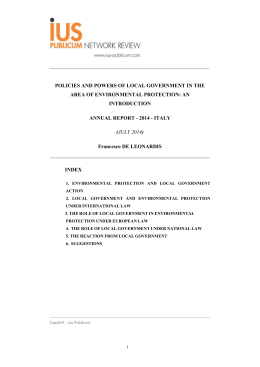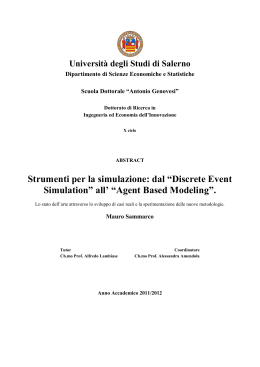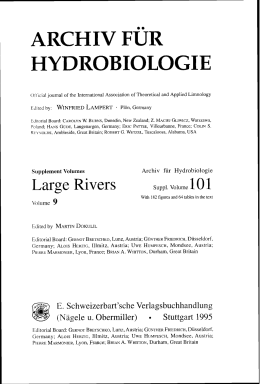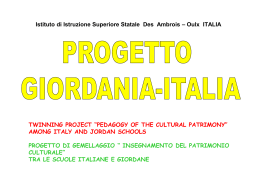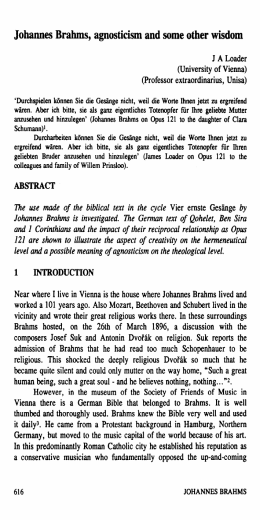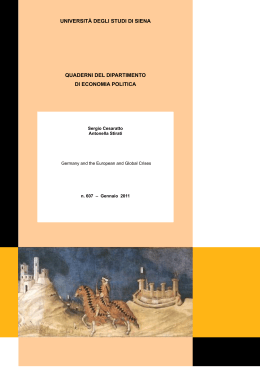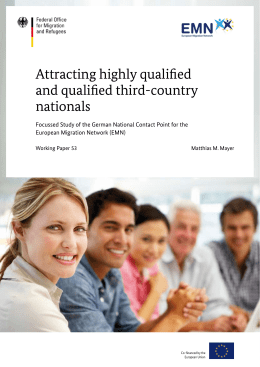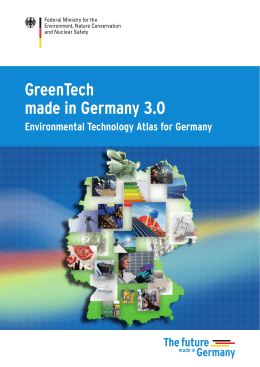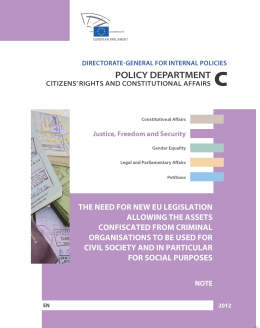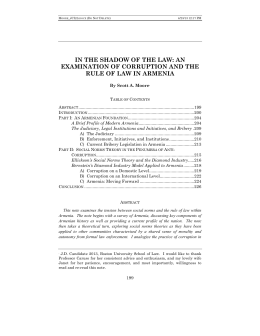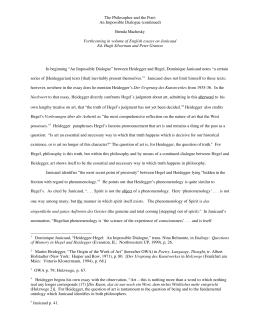_____________________________________________________________ COMPARATIVE ADMINISTRATIVE LAW AND ADMINISTRATIVE PROCEDURE ANNUAL REPORT – 2011 - GERMANY (October 2011) Prof. Dr. Michael FEHLING, LL.M. (Berkeley) _____________________________________________________________ INDEX 1. GENERAL ADMINISTRATIVE LAW IN GERMANY 1.1 The scope of German Administrative Law 1.2 The role of Comparative Administrative Law 2. CONCEPTUAL ISSUES 2.1. Classical legal perspective versus outcome-based or governance-approach 2.2. Towards a new concept of administrative procedure 2.3. Is it necessary to reform the Administrative Procedure Act? 3. CORE DEVELOPEMENTS IN 2010/2011 3.1 The transformation of the service directive 3.2 Freedom of information 3.3 Environmental impact assessment and participation in planning procedures 3.4 General principles of Administrative Law 4. BIBLIOGRAPHY ______________________________________________________________________________ Copyleft – Ius Publicum 1 _____________________________________________________________ 1. GENERAL ADMINISTRATIVE LAW IN GERMANY This report deals with General Administrative Law (Allgemeines Verwaltungsrecht) in Germany, which has to be distinguished from the special areas of Administrative Law (Besonderes Verwaltungsrecht), such as Environmental Law, Civil Service Law, Public Law and Economics (Regulation) etc. Within the framework of General Administrative Law, some aspects are excluded because they are subject of other reports, e.g. administrative contracts, administrative decisions and the scope of judicial review. Comparative research in Germany is covered as well; again, the focus lies on General Administrative Law. 1.1 The scope of German Administrative Law While in some other countries the meaning of Administrative Law is confined to administrative procedure, in Germany the term includes material principles as well. Both can be found in the Administrative Procedure Act. The respective acts of the German states (Länder) and their federal equivalent are largely similar, so that it usually suffices to consider the provisions of the Federal Administrative Procedure Act. Unfortunately, the Administrative Procedure Act (Verwaltungsverfahrensgesetz) does not cover the whole set of general concepts and procedures in Administrative Law. Rulemaking procedures, for example, are excluded. To find out about general ideas and concepts outside of the scope of the Administrative Procedure Act, it is necessary to examine special areas of Administrative Law and draw overarching conclusions from them. Furthermore, new developments often start in special areas of Administrative Law before they become a part of general doctrine. Therefore, legal scholarship often analyses the most advanced special areas as “reference fields” (Referenzgebiete)1 to identify new trends in 1 See in general Schmidt-Aßmann, Das allgemeine Verwaltungsrecht als Ordnungsidee, 2nd ed., Berlin 2006; Voßkuhle, Neue Verwaltungsrechtswissenschaft, in: Hoffmann-Riem/Schmidt-Aßmann/Voßkuhle (eds.), Grundlagen des Verwaltungsrechts, vol. 1, München 2006, § 1 Mn. 43 ff. ______________________________________________________________________________ Copyleft – Ius Publicum 2 _____________________________________________________________ General Administrative Law. Under both aspects – filling gaps in the Administrative Procedure Act and searching for new trends – it will be necessary to consider some more specific legal problems as well. In recent years, crucial developments have taken place in Environmental Law, Economic Regulation of Network Industries and Public Procurement Law, many of them subject to European influence. 1.2 The role of Comparative Administrative Law In Germany, comparative research in administrative law has increased over the last decade and will probably continue to thrive in the future. This due to both academic and economic reasons.2 Firstly, the number of German scholars that have studied or conducted research abroad is growing. Vice versa, foreign legal scholars undertake comparative research and often publish the result in Germany as well. Secondly, European integration raises the importance of analysing solutions in other member states,3 especially if all of them have had to transform the same European directives into national law. Thirdly, competition among European legal systems has generally increased, creating the necessity to reform national law in order to increase efficiency. This is still less important in Administrative Law than in Private Law because the former is much more closely linked to the unique national political system and history; in Germany, the catastrophe of Nazism has influenced the development of Public Law and of General Administrative Law in particular. Nevertheless, the rivalry among the member states to encourage business activities urges for more efficient administrative procedures in economic regulation as well. Fourthly, economic integration raises the number and frequency of transnational administrative procedures. These challenges necessitate more comparative research. 2 For a recent, thorough investigation of the methods and history of Comparative Administrative Law in Germany see Schönberger, Verwaltungsrechtsvergleichung: Eigenheiten, Methoden und Geschichte, in: v. Bogdandy/Huber (eds.), Ius Publicum Europeaum, vol. 4: Verwaltungsrecht in Europa, 2011, § 71. 3 The basis of this is Schwarze, Europäisches Verwaltungsrecht, 2nd ed., Baden-Baden 2005; more recently von Danwitz, Europäisches Verwaltungsrecht, Berlin 2008. ______________________________________________________________________________ Copyleft – Ius Publicum 3 _____________________________________________________________ Comparative research in Germany concentrates on the U.S.4 and on the biggest EU Member States, France5 and Great Britain.6 In Comparative Administrative Law, these countries also represent different legal traditions. Naturally, the other German-speaking countries in Europe, Austria and Switzerland, whose university professors are united in the German Association of Public Law Scholars (Deutsche Staatsrechtslehrervereinigung), are important jurisdictions for comparative research as well. Spain and Italy might be next to mention.7 The bulk of comparative research in Administrative Law focuses on special areas closely linked to the economy (environmental law, economic regulation).8 However, administrative procedure is a central subject of such research as well. Recent special publications will be mentioned in the further chapters of this report. 2. CONCEPTUAL ISSUES 2.1. Classical legal perspective versus outcome-based or governance-approach For more than 10 years, the concept of scientific research in Administrative Law has been debated among German scholars. The traditional legal school of thought (juristische Methode) considers doctrinal issues and focuses exclusively on determining the 4 In General Administrative Law e.g. Pünder, Exekutive Normsetzung in den Vereinigten Staaten von Amerika und in der Bundesrepublik Deutschland, Münster 1995; Lepsius, Verwaltungsrecht unter dem Common Law, Tübingen 1997; Fehling, Verwaltung zwischen Unparteilichkeit und Gestaltungsaufgabe, Tübingen 2001. 5 For example Ladenburger, Verfahrensfehlerfolgen im deutschen und im fanzösischen Verwaltungsrecht, Berlin 1999; Neidhardt, Nationale Rechtsinstitute als Bausteine europäischen Verwaltungsrechts, 2008. 6 Brinktrine, Verwaltungsermessen in Deutschland und England: eine rechtsvergleichende Untersuchung von Entscheidungsspielräumen der Verwaltung im deutschen und englischen Verwaltungsrecht, Heidelberg 1998. 7 Very important the country reports in Schneider (ed.), Verwaltungshandeln in Europa, vol. 1, 2007 (England and Wales, Spain, the Netherlands); vol. 2, 2009 (France, Poland, Czech Republic). 8 For example Stelkens/Nogellou (eds.), Droit comparé des Contrats Publics / Comparative Law on Public Contracts, Brussels 2010; Lepsius, Regulierungsrecht in den USA: Vorläufer und Modell, and Ruffert, Europäisches Ausland, in: Fehling/Ruffert (eds.), Regulierungsrecht, 2010, § 1 and § 2 . ______________________________________________________________________________ Copyleft – Ius Publicum 4 _____________________________________________________________ legality of administrative actions, thus assuming the perspective of judicial review. Today, however, a “New Administrative Law Science” (Neue Verwaltungsrechtswissenschaft) advocates a broader frame of reference that includes the changes in reality that Administrative Law and its application intend to bring about. Its German technical term (Steuerungsperspektive9) is scarcely translatable – it denotes an outcome-oriented point of view that, in comparison to the related governance approach, is actor-based to a greater extent. Critics argue that the rule of law is weakened by assuming this broader perspective, since it takes into account aspects of political science, sociology and economics as well; it enhances the regulatory power of the state and correspondingly diminishes the protection of individual rights. The introduction of social sciences into the legal argumentation threatens to erode the traditional methods of statutory interpretation as a cornerstone of legal certainty.10 However, from my point of view, this is a misinterpretation of the concept. It does not neglect the aspect of legality but tries to work out the possible regulatory options, measures and instruments within its confines (Optionenraum11). Although major contributions to this scholarly dispute are older, there is a lot of controversial discussion on these issues in the last two or three years.12 2.2. Towards a new concept of administrative procedure Since the end of the Nazi Regime, German Administrative Law focuses primarily on the result of administrative action; the scope of substantive review is traditionally broad and there is not much room for administrative discretion.13 Administrative procedure is 9 For an overview see Voßkuhle (supra note 1), § 1 Mn. 16 ff. 10 See e.g. Wahl Herausforderungen und Antworten: Das öffentliche Recht in den letzten fünf Jahrzehnten, Berlin 2006; Gärditz, Hochschulorganisation und verwaltungsrechtliche Systembildung, Tübingen 2009, pp. 182 ff. ; critical review by Fehling, Die Verwaltung 43 (2010), pp. 127 ff. 11 Hoffmann-Riem, Eigenständigkeit der Verwaltung, in: Hoffmann-Riem/Schmidt-Aßmann/Voßkuhle (supra note 1), §10, Mn. 45. 12 In 2012 there will be a 2nd edtion of Hoffmann-Riem/Schmidt-Aßmann/Voßkuhle (eds.), Grundlagen des Verwaltungsrechts, vol 1.; most recently Stelkens Rechtsetzungen der europäischen und nationalen Verwaltungen, VVDStRL 71 (2012, publication forthcoming). 13 From a historic perspective Wahl (supra note 10), pp. 20 ff. ______________________________________________________________________________ Copyleft – Ius Publicum 5 _____________________________________________________________ attributed a mere serving function (dienende Funktion) to reach the legally correct result. Procedural errors are considered harmless unless they influence the final administrative decision (§ 46 Administrative Procedure Act – VwVfG). Furthermore, procedural guarantees are traditionally subject to judicial review only if such gurantees serve the interests of the claimant and not only the interests of other people or of the general public as a whole. Under European influence, however, the scope of review concerning complex administrative decisions (e.g. in environmental law and in economic regulation) is a narrower one;14 as a compensation, administrative procedure and procedural judicial review become much more important. In a regulatory context, this is reinforced by the necessity to gather information from the regulated industry and to acquire knowledge needed to render good decisions.15 From this starting point, a scholarly discussion is evolving on whether German Administrative Law should shift its attention from substantive justice to procedural justice, giving more weight to the instrumental as well as the non-instrumental justification of administrative procedures. This suggestion has been deliberated extensively at the annual conference of the association of German Public Law Scholars (Tagung der Vereinigung der Deutschen Staatsrechtslehrer) in Berlin 201016, in a doctoral thesis17 and in recent Law Review articles.18 In my opinion, there are good reasons for boosting the importance of administrative procedure in Germany, especially regarding special procedures (e.g. for 14 For example in telecommunication BVerwGE 131, 41 (Mn. 14 ff., 21 f, 47 ff., 63 ff.), most recently BVerwG, judgment of 2011, November 23rd – 6 C 11/10; concerning the integrated European administration in the regulation of genetically modified food OVG Lüneburg, NuR 2009, 566 (599). 15 Most recently B. Wollenschläger, Wissensgenerierung im Verfahren, Tübingen 2009. 16 Gurlitt, Der Eigenwert des Verfahrens im Verwaltungsrecht, VVDStRL 70 (2011), pp. 227 ff.: from a Comparative Administrative Law perspective (including England, France, the European Union and the U.S.) Fehling, Der Eigenwert des Verfahrens im Verwaltungsrecht, VVDStRL 70 (2011), pp. 280 ff.; report of the discussion pp. 338 ff. 17 Quabeck, Dienende Funktion des Verwaltungsverfahrens und Prozeduralisierung, Tübingen 2010. 18 Stelkens, Der Eigenwert des Verfahrens im Verwaltungsrecht, DVBl. 2010, pp. 1078 ff ______________________________________________________________________________ Copyleft – Ius Publicum 6 _____________________________________________________________ public tendering and service concessions19 and in environmental law) and the procedure within and among different administrative agencies. From a Comparative Administrative Law perspective, these are not German problems but the result of European Law. Only the need to reform rulemaking procedures can be considered specifically German. Apart from a few special areas of Administrative Law, there is no overarching necessity to reduce the scope of judicial review because of more elaborated administrative procedures.20 2.3. Is it necessary to reform the Administrative Procedure Act? The German Administrative Procedure Act has been subject to criticism for quite some time. Most importantly, the Act does not cover rulemaking procedures. Apart from some specific statutes, these are subject only to the Internal Rules of the Federal Government (Geschäftsordnung der Bundesregierung) without the force of law.21 Furthermore, many administrative law scholars argue in favour of the revocation of § 45 (2) VwVfG which today allows the administration to repair procedural mistakes even when an administrative court procedure is already pending.22 The quasi-judicial procedure for formal adjudication does not make much sense and is widely neglected in the laws governing Special Administrative Law (except for the special provisions concerning procedures for planning approvals). It should be replaced by a more modern procedure governing licensing through participation of the public.23 Some scholars even propose the integration of further types of procedures or provisions governing certain elements of procedures into the 19 Recently F. Wollenschläger, Verteilungsverfahren, Tübingen 2010; Kaelble, Vergabeentscheidung und Verfahrensgerechtigkeit, Berlin 2008. 20 Fehling (supra note 16), pp. 328 f. 21 Pünder (supra note 4), pp. 142 ff.; Wolff, Die dienende Funktion der Verfahrensrechte – eine dogmatische Figur mit Aussagekraft und Entwicklungspotential, in: Festschrift für Scholz, Berlin 2007, p. 977 (988 ff.). The pros and cons of more elaborated rulemaking procedures in Germany have been discussed again recently at the annual conference of the association of German Public Law Scholars (Tagung der Vereinigung der Deutschen Staatsrechtslehrer) in Münster 2011; see Stelkens (supra note 12) arguing in favour of a codification and the related discussion remarks (publication forthcoming in 2012). 22 Recently again Gurlitt (supra note 16), pp. 260 ff.; Fehling, (supra note 16), p. 326. 23 Most prominently Wahl, e.g. Fehlende Kodifizierung der förmlichen Genehmigungsverfahren im Verwaltungsverfahrensgesetz, NVwZ 2002, pp. 1192 ff.; compare Burgi, Verwaltungsverfahrensrecht zwischen europäischem Umsetzungsdruck und nationalem Gestaltungsunwillen, JZ 2010, p. 105 (110). ______________________________________________________________________________ Copyleft – Ius Publicum 7 _____________________________________________________________ Administrative Procedure Act.24 The provisions on administrative contracts (Verwaltungsverträge) could be amended to include special rules for public-privatepartnerships; in addition, § 59 VwVfG dealing with the legal consequences of unlawfulness (whether the contract is void or remains in effect) should be more sophisticated. There has even been a proposal of the Advisary Committee on General Administrative Law (Beirat Verwaltungsverfahrensrecht) for such an amendment.25 However, there is little political consensus concerning the amendment of the Administrative Procedure Act. Only some of its chapters have been changed to implement the procedural demands of the EU-Service Directive (see next section). The lack of political pressure to thoroughly reform the Act might be due to the fact that legal practice is largely able to deal with its shortcomings. However, an important reform concerning the participation of environmental organisations and their right to judicial review will probably take place – albeit outside of the Administrative Procedure Act. 3. CORE DEVELOPEMENTS IN 2010/2011 3.1 The transformation of the service directive The EU-Service Directive26 contains several provisons governing procedures within the European integrated administration concerning transnational service-licensing procedures. Consequently, in 2009 the Administrative Procedure Act has been amendend 24 Most recently Fehling (supra note 16), pp. 326 f., drawing partly on Hoffmann-Riem, Verwaltungsverfahren und Verwaltungsverfahrensgesetz – Einleitende Problemskizze, in: Hoffmann-Riem/Schmidt-Aßmann (eds.), Verwaltungsverfahren und Verwaltungsgesetz, 2002, p. 9 (65 f.); compare Voßkuhle, Strukturen und Bauformen neuer Verwaltungsverfahren, in: Hoffmann-Riem/Schmidt-Aßmann (ed.), Verwaltungsverfahren und Verwaltungsgesetz, 2002, p. 277 (284 ff.). 25 Beirat Verwaltungsverfahrensrecht beim Bundesministerium des Innern, Fortentwicklung der Vorschriften über den öffentlich-rechtlichen Vertrag (§§ 54-62 VwVfG), NVwZ 2002, pp. 834 ff.; but compare the new advice: Bewährtes Weiterentwickeln, NVwZ 2010, pp. 1078 f. For a recent discussion see Stelkens, Kodifikationsidee, Kodifikationseinung und Kodifikationsverfahren im Verwaltungsverfahrensrecht, in: Hill/Sommermann/Stelkens/Ziekow (eds.), 35 Jahre Verwaltungsverfahrensgesetz – Bilanz und Perspektiven, 2011, p. 271 (280 ff.) 26 Directive 2006/123/EC on services in the internal market of 12 December 2006, OJ L 376, 27/12/2006, p. 36. ______________________________________________________________________________ Copyleft – Ius Publicum 8 _____________________________________________________________ by new provisions on official assistance (§§ 8a ff. VwVfG, Amtshilfe). New procedures to be dealt with by a single autority (§§ 72a ff. VwVfG, Verfahren über eine einheitliche Stelle), and a provison on fictitious approval (§ 42a VwVfG, Genehmigungsfiktion) had already been introduced in 2008. Although these new parts of the Administrative Procedure Act shall transfer the European directive on transnational services into national German law, these provisions are framed in such general terms that they can apply to other special areas of administrative law as well if the special law refers to them. Some major acts concerning business regulation (e.g. Gewerbeordnung, Handwerksordnung) already do so. §§ 8a ff. VwVfG are framed in very general language and do not provide much guidance as to the functioning of transnational administrative procedures. They mostly refer to the special rules laid down in the specific secondary law of the European Union. This is probably why legal scholarship has not focused on these general VwVfG-provisons until now.27 The procedures dealt with by a single authority (§§ 71a-71e VwVfG) might become more influential. They articulate the service function of administrative procedures: The applicant shall not be forced to correspond with many agencies for different licenses necessary to set up his business operation, but can contact the single authority (einheitliche Stelle) which acts as a front office and organizes the interaction of the specialized agencies involved.28 Another cornerstone of service-oriented acceleration is the right of the applicant to electronic procedures. It seems possible that these new provisons open up a new era of internet-based administrative procedures which, in the future, might even be applied in many areas of environmental law as well. So far, the complicated and expensive electronic signature that proves the authenticity of electronic declarations (see § 3a VwVfG)29 is 27 Schmitz/Prell, Europäische Verwaltungszusammenarbeit – Neue Regelungen im Verwaltungsverfahrensgesetz, NVwZ 2009, pp. 1121 ff. 28 Compare Ernst, Die Einführung eines einheitlichen Ansprechparners i.S. der EU-Dienstleistungsrichtlinie durch das 4. Gesetz zur Änderung verwaltungsverfahrensrechtlicher Vorschriften, DVBl 2009, pp. 953 ff. 29 Compare Eisenmenger, in: Fehling/Kastner (eds.), Handkommentar Verwaltungsrecht, 2nd ed. Baden-Baden 2010, § 71c VwVfG Mn. 5 ______________________________________________________________________________ Copyleft – Ius Publicum 9 _____________________________________________________________ inhibiting this development. The Federal Government is working on a bill to make it significantly easier und cheaper to prove the actor’s authenticity on the internet, both for business transactions and for the correspondence with administrative agencies. § 42a VwVfG on fictitious approvals is the most controversial one of the new provisons. In a few special areas of administrative law (e.g. building permits due to State law) such provisons which constitute a de jure approval if the administrative agency did not react to an application within a certain amount of time, could be found already before. But only now this concept to accelerate administrative proceedings30 by a fixed decision making period will gain more general importance. Critics argue that the (procedural) rights of third parties might be harmed by such a fictitious approval.31 Without this concept, however, administrative agencies might find new strategies for undermining the decisionmaking period (which can only be extended once).32 Firstly, an agency could be tempted to reject an application simply on the grounds that the fixed decision-making period ends; after some more time and more serious consideration, the agency would still be able to change its prior decision. Secondly, an administrative agency can revoke the fictitious approval afterwards. Both strategies would arguably take more time than a normal decision in the first place. Furthermore, conflict might arise upon the question whether the application documents are complete, because this is necessary for the period to begin.33 30 For this concept see Fehling, Beschleunigung von Genehmigungsverfahren in der Umsetzung der Dienstleistungsrichtlinie, in: Fehling/Grewlich (ed.), Struktur und Wandel des Verwaltungsrechts, Baden-Baden 2011, p. 43 ff. 31 Compare Fehling (supra note 30), pp. 52 and 55 f. 32 See Eisenmenger (supra note 29), § 42a VwVfG Mn. 10; Ziekow, Möglichkeiten zur Verbesserung der Standortbedingungen für kleinere und mittlere Unternehmen durch Einführung von Genehmigungsfiktionen, Berlin 2008, p. 103. 33 Uechtritz, Die allgemeine verwaltungsverfahrensrechtliche Genehmigungsfiktion des §42a VwVfG, in: Burgi/Schönenbroicher (eds.), Die Zukunft des Verwaltungsverfahrensrechts, 2010, p. 61 (70 ff.). ______________________________________________________________________________ Copyleft – Ius Publicum 10 _____________________________________________________________ 3.2 Freedom of Information Traditionally, German Administrative Law rests on administrative secrecy. Only participants of an administrative procedure are entitled to inspect the documents connected with the proceedings (§ 29 VwVfG). This started to change with the Act on Information Concerning the Environment (Umweltinformationsgesetz – UIG)34 which transposed the Directive on Free Access to environmental information35 into German Law. Critics argued that the Act – at least in its first version – contained too many exemptions from freedom of environmental information to protect business secrecies. A more fundamental change came with the Freedom of Information Acts (Informationsfreiheitsgesetz – IFG) at the Federal level (2005)36 and in the German States. Although they are not a part of the Administrative Procedure Act, these new Laws shift the rule from administrative secrecy to openness. Everybody, without the necessity to show a special legal interest, has the right to access all administrative documents unless one of the exemptions laid down in the Act prevails. The most important doctrinal question is whether these exemptions – to protect an overwhelming public interest or for the protection of private data and business secrets – should be read narrowly or, because of the German tradition, be construed broadly. A further question is which documents fall within the ambit of Freedom of Information; drafts and purely internal papers, for example, are not covered by the act. The last years have seen a growing jurisprudence on these issues.37 The Federal Administrative Court (Bundesverwaltungsgericht) favors a broad reading of the scope of the documents involved, because free access facilitates democratic scrutiny of government action. The Federal Freedom of Information Act covers even documents of the Federal Government, acting 34 First enacted 2001 (BGBl. I, p. 2218); revised 2004 (BGBl. I, p. 3704). 35 Directive 90/313/EEC on the freedom of access to information on the environment of 07 June 1990, OJ L 158, 23/06/1990, p. 58; Directive 2003/4/EC on public access to environmental information of 28 January 2003, OJ L 41, 14/2/2003, p. 26. 36 BGBl. I, p. 2722; commentary on this act by Schoch, Informationsfreiheitsgesetz, München 2009. 37 For a recent overview see Schoch, Das Informationsfreiheitsrecht in der gerichtlichen Praxis, VBlBW 2010, pp. 333 ff. ______________________________________________________________________________ Copyleft – Ius Publicum 11 _____________________________________________________________ outside of normal administrative duties. In general, restrictions on access must be based on written exemptions in the Act (§ 3 IFG) serving the public interest in secrecy. Only under exceptional circumstances there might be unwritten exemptions directly grounded in the constitution to protect the functioning of policymaking, especially within the cabinet.38 In several decisions the Federal Administrative Court stressed the fact that written exemptions must not be applied automatically but need to be based on an assessment of the circumstances of the case at hand. Documents which are labelled as “classified – only for internal use” (Verschlusssache – nur für den Dienstgebrauch) are not automatically exempted by § 4 No. 4 IFG, but only if an actual need for confidentiality can be established.39 However, the Federal Administrative Court recognizes the necessity of secrecy e.g. for information about CIA-flights in Germany during the War in Iraq 2003 to protect legitimate interests in foreign affairs according to § 3 No. 1 lit a IFG; there is even a margin of appreciation (Beurteilungsspielraum) for the administrative agency.40 Internal discussions within administrative agencies remain secret according to § 3 No 3 IFG even after the administrative procedure has been finished.41 Whether business secrets must be protected (e.g. according to § 3 No. 4 IFG42 or according to § 6 IFG43) has to be decided by balancing of interests; there is no clear presumption for secrecy any longer. Similar rules apply for the Act on Information Concerning the Environment (Umweltinformationsgesetz).44 Until now, there seems to be no clear tendency for a widespread abuse of freedom of information to get insight into business secrets of competitors. 38 BVerwG, judgement of 2011, November, 3rd – 7 C 3/11. 39 BVerwG, judgement of 2009, October 29th – 7 C 21/08 – NVwZ 2010, 326 ff. 40 BVerwG, judgement of 2009, October 29th – 7 C 22/08 – NVwZ 2010, 321 ff. 41 BVerwG, judgement of 2011, July 18th – 7 B 14/11 – NVwZ 2011, 1072 f.. 42 See BVerwG, judgement of 2011, May 24th – 7 C 6/10 – NVwZ 2011, 1012 ff. 43 44 BVerwG, judgement of 2009, May 28th – 7 C 18/08 – NVwZ 2009, 1113 f. For example OVG Münster, judgement of 2011, May 23th – 8 B 1729/10 – DVBl 2011, 968 ff. ______________________________________________________________________________ Copyleft – Ius Publicum 12 _____________________________________________________________ 3.3 Environmental Impact Assessment and participation in planning procedures The Environmental Impact Assessment has been a part of German Environmental Law for quite a long time. Because of the Arhues Convention45 and the corresponding EUDirective providing for public participation in environmental decision-making46 this procedural requirement has become much more important. Now, under the German Environmental Remedy Act (Umweltrechtsbehelfsgesetz - UmwRG), environmentalist nongovernmental organisations can bring a case to court if such an impact assessment was performed in violation of the law. This brings about two major changes in Administrative Law doctrine. Firstly, the plaintiff does not have to show an individual right for standing. The wording of § 2 (1) and (5) UmwRG is not clear about this, but the European Court of Justice in the Trianel-Case47 decided that allowing altruistic action for environmentalist NGOs is mandatory under the EU-Directive.48 Second, § 4 UmwRG dispenses from § 46 VwVfG, which stipulates that an administrative act is not invalid solely on the grounds that the act came into being in violation of governing procedure. If one applies this provision to the environmental impact assessment, the administrative act would not be rendered invalid by its absence if the agency can show that it has taken into account the environmental impact of the project without the formal assesment-procedure. This would pose an eminent danger that elaborate procedural requirements would become meaningless. Thus, according to the Environmental Remedy Act, § 46 VwVfG is not applicable to the Environmental Impact Assessment or to the screening procedure that determines whether such an 45 Convention on Access to Information, Public Participaton in Decision-making and access to Justice in Environmental Matters of 1998, available at http://www.unece.org/fileadmin/DAM/env/pp/documents/cep43e.pdf (last accessed 10/02/2012). 46 Directive 2003/35/EC providing for public participation in respect of the drawing up of certain plans and programmes relating to the environment and amending with regard to public participation and access to justice Council Directives 85/337/EEC and 96/61/EC of 26 May 2003, OJ L 156, 25/06/2003, p. 15. 47 ECJ, judgement of 2011, May 12th – C-115/09 – Bund für Umwelt und Naturschutz Deutschland v. Bezirksregierung Arnsberg, Trianel Kohlekraftwerk intervening, DVBl 2011, pp. 757 ff. 48 For a more detailed description see Ruffert, European Administrative Law – Annual Report – 2010 – Germany, under 3., 1.1.; Until the German law has been amended, Art. 10a (2) of the Environmental Impact Assessment Directive is directly applicable, see VGH Mannheim, judgement of 2011, July 20th – 10 S 2102/09 – ZUR 2011, 600 (602). ______________________________________________________________________________ Copyleft – Ius Publicum 13 _____________________________________________________________ Assessment is necessary.49 If, however, the Assessment is not completely missing but only not made properly, § 46 VwVfG still applies. There is a dispute whether severe procedural mistakes must count as if there were no environmental impact assessment at all.50 Furthermore, the EU-Directive probably (even if the wording of § 4 (1) UmwRG together with § 45 (2) VwVfG is to the opposite) does not allow to make good the lack of an environmental impact statement in case it has become necessary because of a screening procedure conducted only after a court procedure is already pending.51 The Trianel-Decision has imposed a duty on the federal legislator to amend the law concerning standing. It is not yet clear whether this reform will take place solely within the Environmental Remedy Act or whether General Administrative Law in the Administrative Procedure Act or in the Code of Administrative Court Procedure (Verwaltungsgerichtsordnung) will be amended as well. There might even be new procedural restrictions (in particular: Provisions that preclude parties from exercising a right [Präklusionsvorschriften]) to “compensate” for broadened standing. Another development at the national level is strengthening public participation in planning procedures. In 2010/2011, there was enormous public protest against the costly replacement of the central railstation in Stuttgart (“Stuttgart 21”). Deutsche Bahn, the largest German Railway Company, planned to relocate the station and the track systems underground. Critics complained that citizens were not given a chance to stop the project. Although the legal participation procedure (according § 73 VwVfG) had been followed and the planning had been finally approved, many people argued that they did not get enough information about the impact of this infrastructure project. In the end, only a referendum 49 Compare even before ECJ, judgement of 2004, January 7th – C 201-02 (Delena Wells). 50 See for example on the one hand Berkemann, Die Umweltverbandsklage nach dem Urteil des EuGH vom 12. Mai 2011 – Die „noch offenen“ Fragen, NuR 2011, p. 780 (786 f.); Schlacke, Zur Beachtlichkeit von Verfahrensfehlern nach § 4 UmwRG, ZUR 2009, 80 (82); on the other hand VGH Kassel, judgement of 2009, September 16th, ZUR 2010, 46 (Mn. 15 ff.). 51 But compare BVerwG, judgement of 2008, August 20th – 4 C 11.07 – E 131, 352 ff. ______________________________________________________________________________ Copyleft – Ius Publicum 14 _____________________________________________________________ (Volksabstimmung) for the whole state (Bundesland) of Baden-Württemberg settled the issue, because the majority voted in favour of Stuttgart 21. This case showed once more that the current formal participation procedure might not be enough to guarantee public influence on major infrastructure projects. The formal participation procedure governed by § 73 VwVfG is often conducted too late, when the issue has already been decided at the political level. Conducting it too early, however, poses the opposite risk: At the stage of public participation planning might not be concrete enough to let people know how the project will affect their interests in the end. This problem is particularly relevant at the higher level of Comprehensive Regional Planning (Raumordnung) according to § 10 or § 15 Federal Regional Planning Act (Raumordnungsgesetz – ROG). Because of these problems there is a growing debate on how to amend the law on administrative procedure to enhance the acceptance (Akzeptanz) of long-term planning decisions.52 3.4 General principles of Administrative Law Although there are, of course, many new court decisions on general principles of administrative law, one can hardly find any fundamental new developments within the last two years. The longlasting controversy about the withdrawal (§ 48 VwVfG) of an administrative act because of unlawful State aid seems to be more or less settled. Recently, the Federal Administrative Court made clear that, according to § 44 VwVfG, an administrative act concerning State aid is not automatically void because the given State aid 52 Compare, for example, Knauff, Öffentlichkeitsbeteiligung im Verwaltungsverfahren, DÖV 2012, 1 ff. ______________________________________________________________________________ Copyleft – Ius Publicum 15 _____________________________________________________________ violates European Law.53 A competitor has to invalidate the act by action for annulment (Anfechtungsklage). 4. BIBLIOGRAPHY Burgi/Schönenbroicher (ed), Die Zukunft des Verwaltungsverfahrensrechts, 2010 Fehling, Der Eigenwert des Verfahrens im Verwaltungsrecht, VVDStRL 70 (2011), pp. 280 ff. Gurlitt, Der Eigenwert des Verfahrens im Verwaltungsrecht, VVDStRL 70 (2011), pp. 227 ff. Hill/Sommermann/Stelkens/Ziekow (ed.), 35 Jahre Verwaltungsverfahrensgesetz – Bilanz und Perspektiven, 2011 Stelkens, Rechtsetzungen der europäischen und nationalen Verwaltungen, VVDStRL 71 (2012) (forthcoming) Quabeck, Dienende Funktion des Verwaltungsverfahrens und Prozeduralisierung, 2010 6. WEB SITES www.iuscomp.org/gla/statutes/VwVfG.htm 53 - Federal Administrative Procedure Act (the last amendment is missing) BVerwG, judgement of 2010, December 16th – BVerwG 3 C 44.09 – E 138, 322 (Mn. 16). ______________________________________________________________________________ Copyleft – Ius Publicum 16
Scaricare
